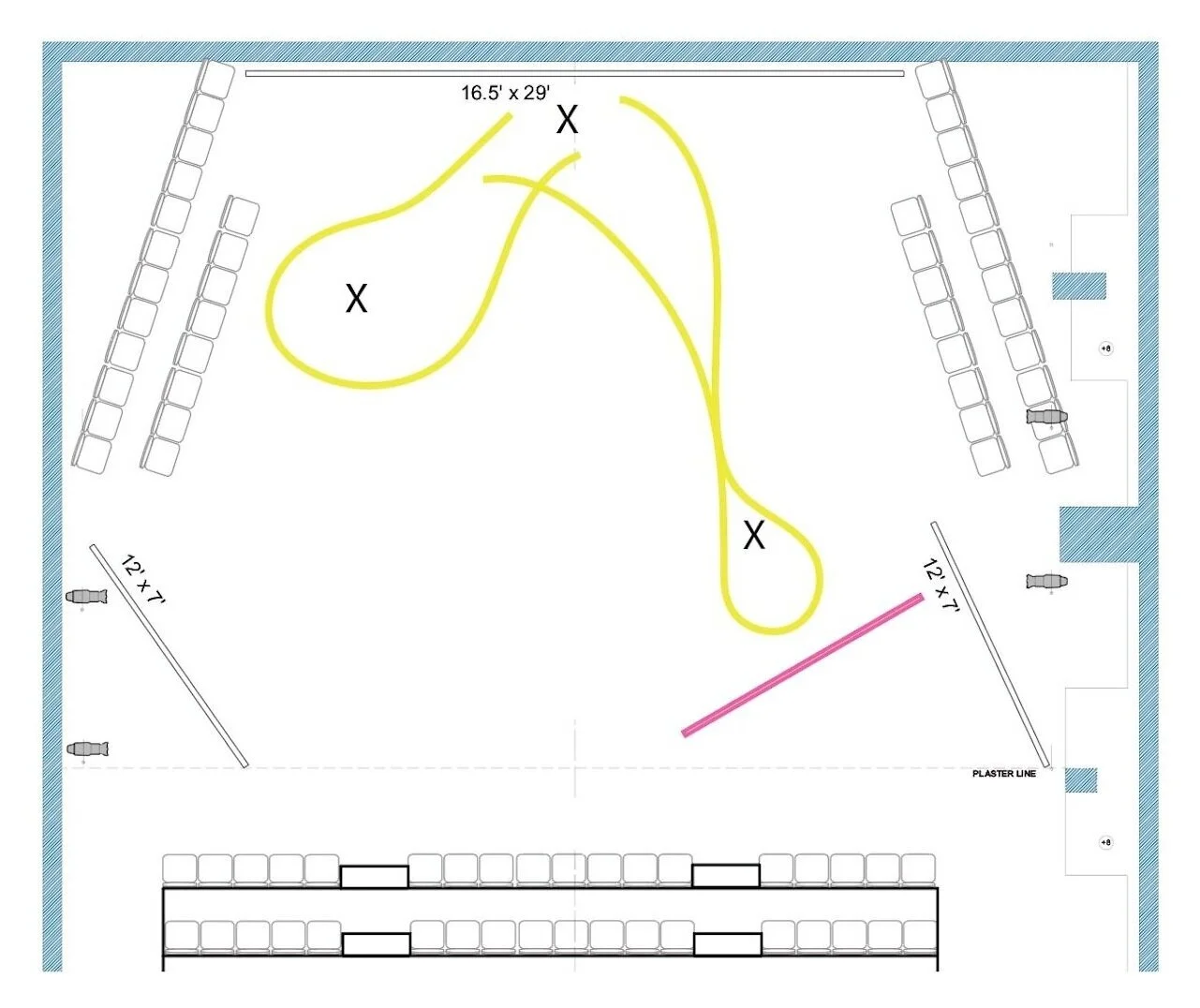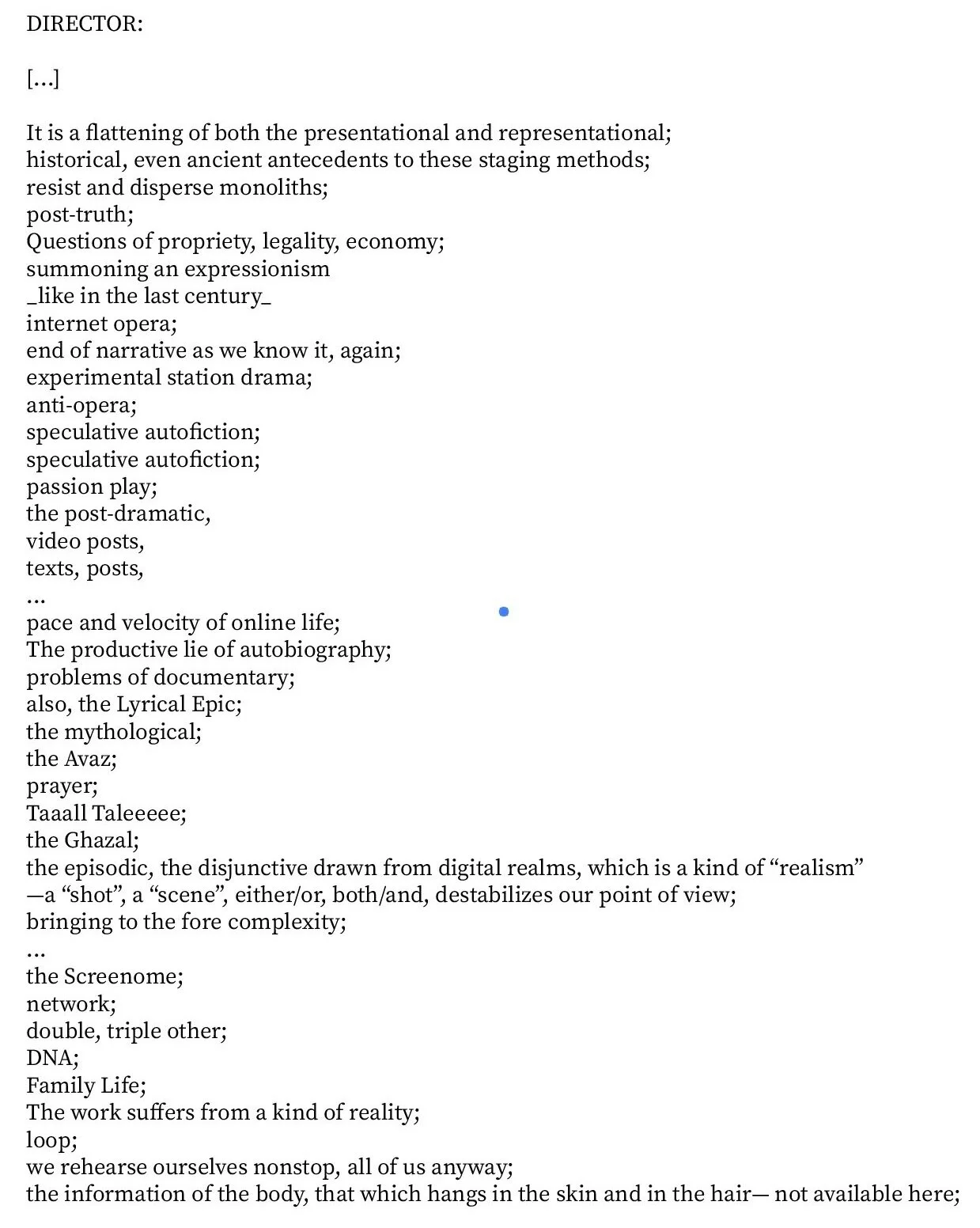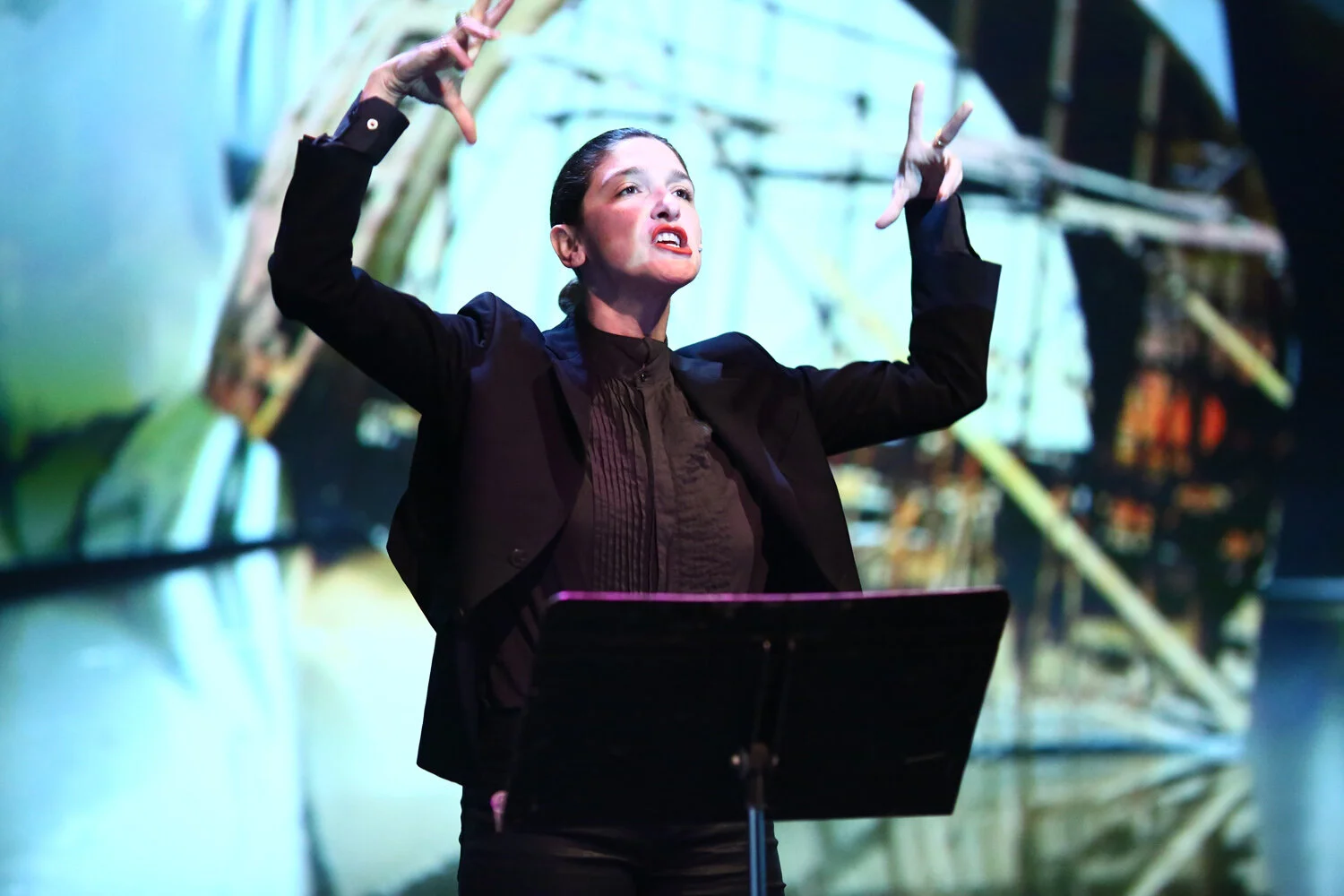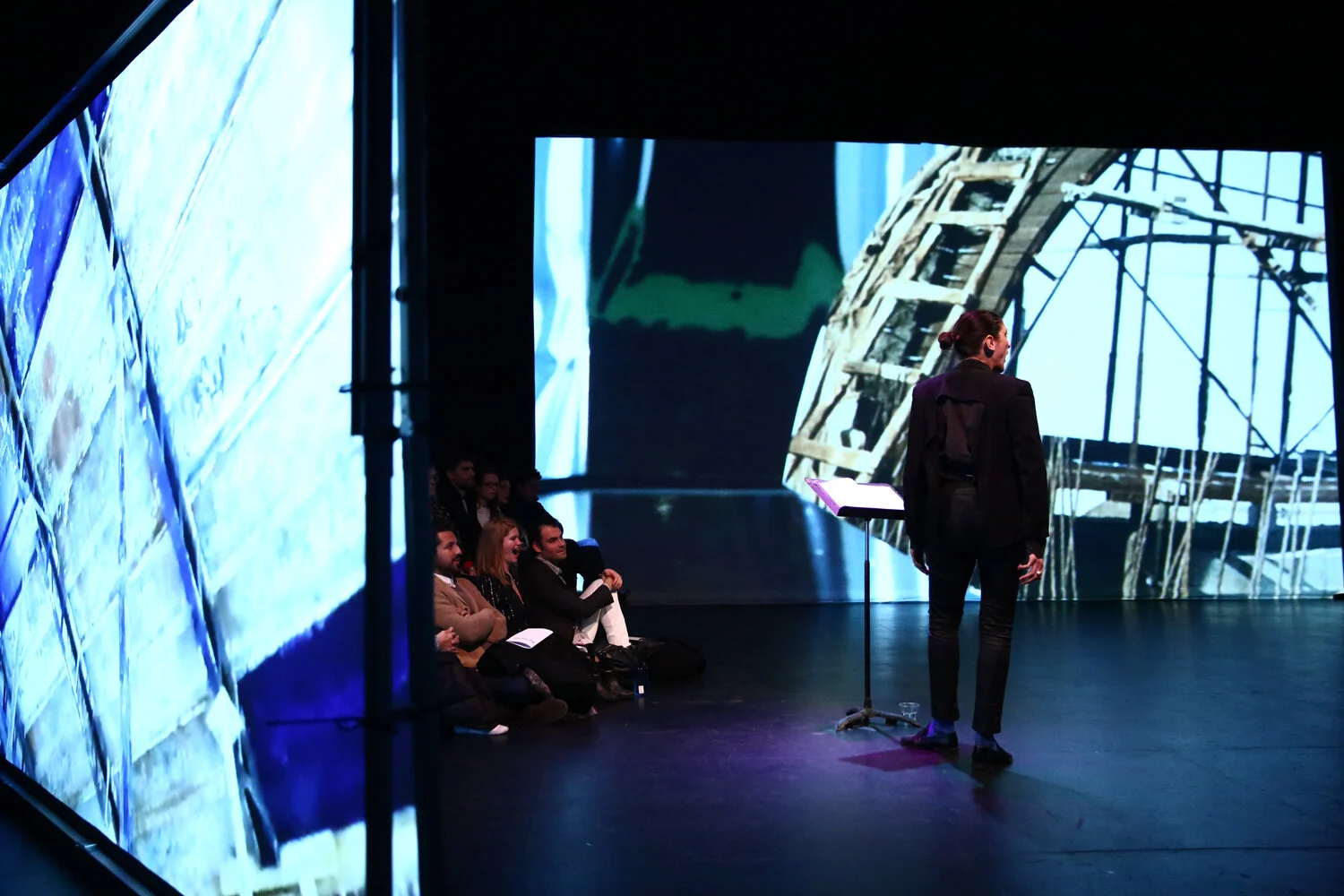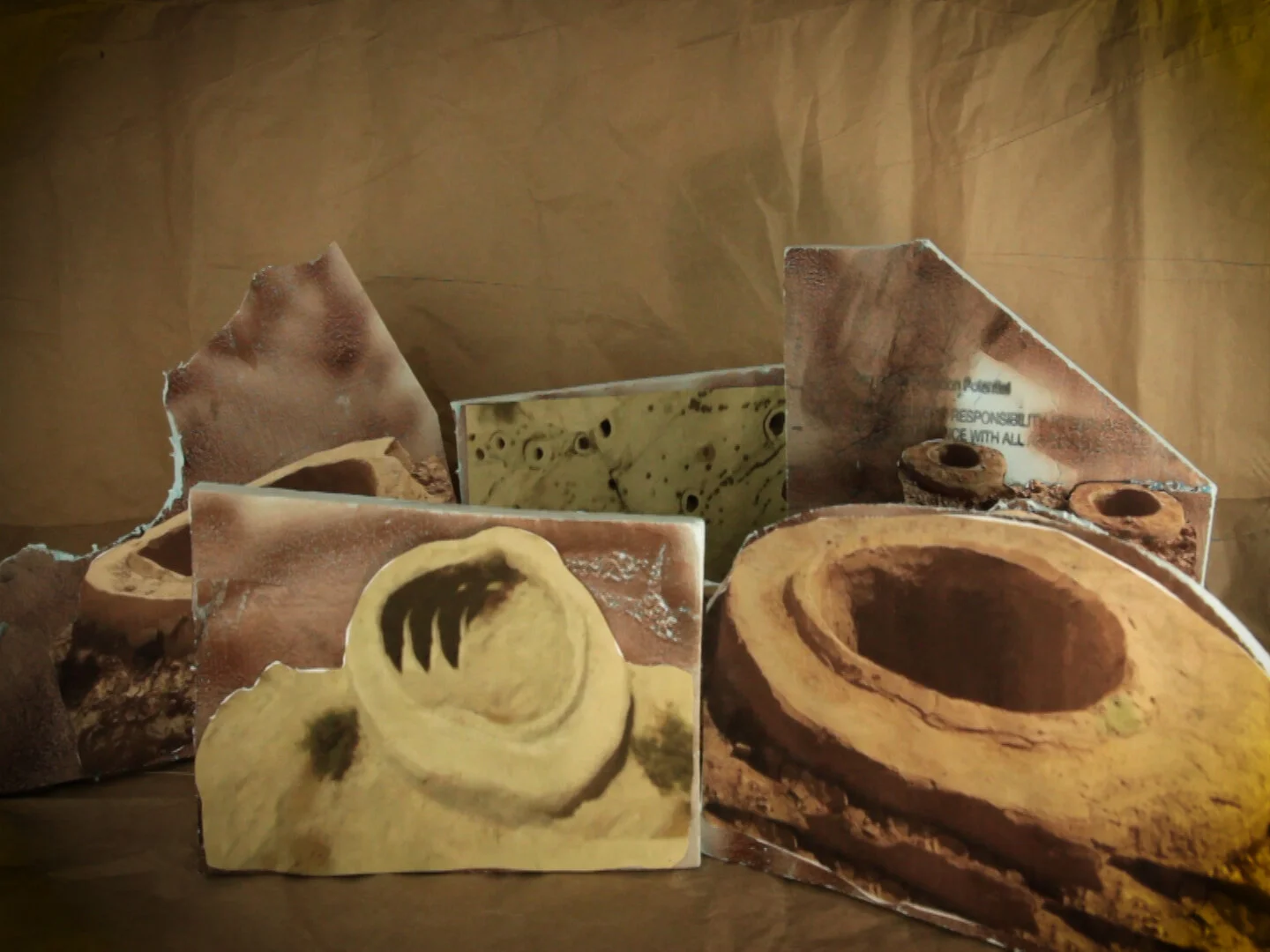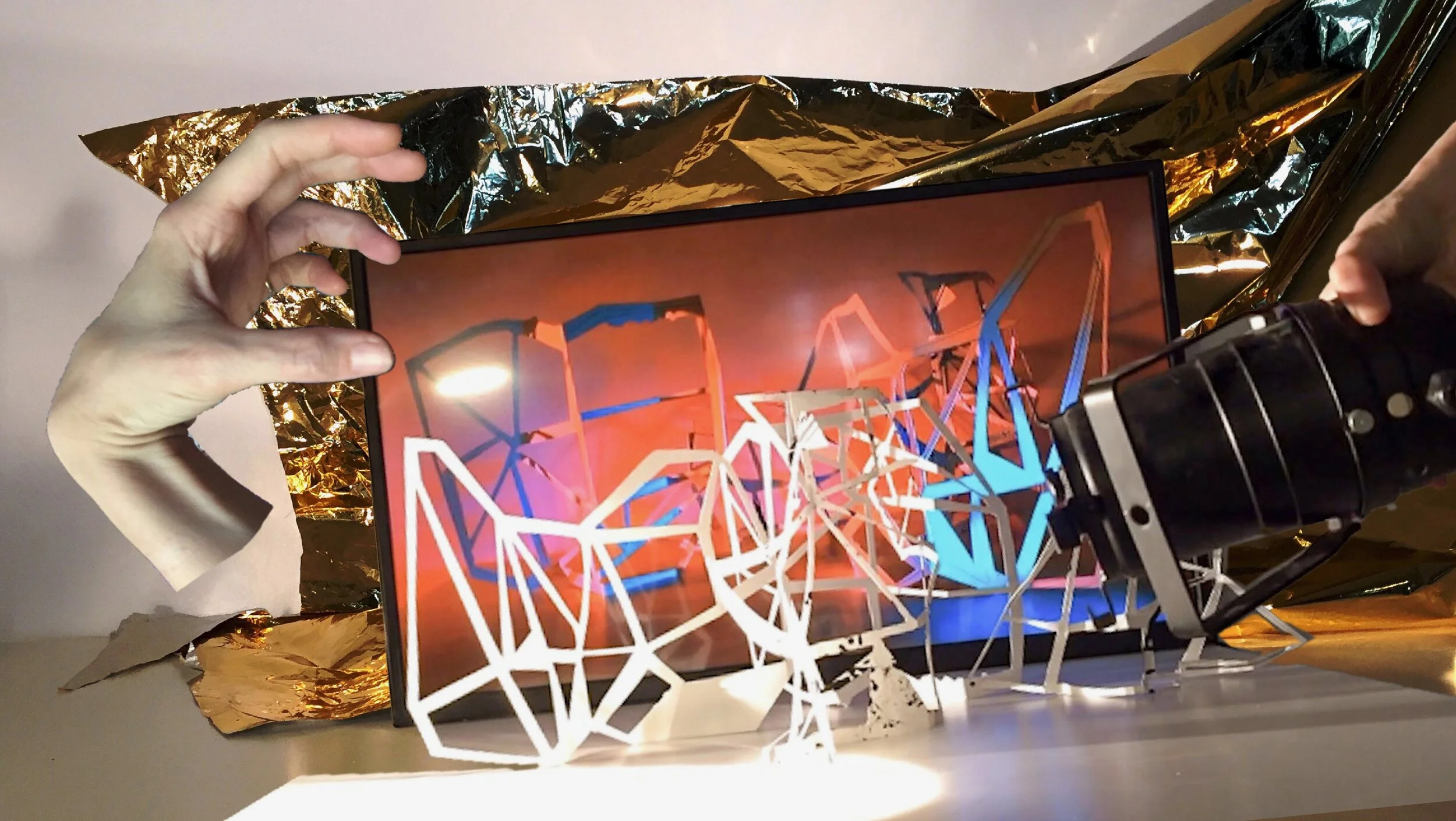Sahra Motalebi: “Directory of Portrayals”
This Video Viewing Room features a performance recording of Sahra Motalebi, Directory of Portrayals (2017), along with artist’s comments, an excerpt of the Director’s notes, and production images.
[1]
[2]
Directory of Portrayals is an open-form opera that first ran at The Kitchen on December 14 and 15, 2017.
[...]
It had been germinating in 2015, maybe 2014, but after a period of several residencies here and abroad in 2016, Directory of Portrayals began to accelerate and expand. This would become a multi-year endeavor and was now a real-time archive holding drawings, multiple iterative librettos, videos, sculptures, music, and sound scores. In the shows at The Kitchen, the opera presented timestamps of its own production, on- and off-line by way of my role as the director: send-ups to its own rehearsals, live tech cues being called, and further deconstructed exhibition stagings all destabilized the storytelling function of this autobiographical work. In the most recent museum production of the work as a performance-exhibition, the footprint of these movements can be traced back to the performances at The Kitchen those nights. The development of the interrelated parts within Directory—the scenographic, musical, dramaturgical, performative, textual—happened on-site, in-the-round, and on a large scale for the first time in the black-box theater there.
[...]
Directory of Portrayals is a first-person experiment that sorts through events that, now in 2020, seem not only plausible but probably inevitable: that one should eventually meet their family, living halfway across the world, online, by way of a name search on global social media networks. The work set out to convey a cross-section of this peculiar time for relations on earth: the interiority and projection, the profound intimacies, the miracles, and the limits—not just in my personal experience in connecting with my own sibling and larger family—but of all our communications online. This was the driving force of the arias and monologues, rather than some sort of simulacrum, or “true-to-life” representation, of familial dialogue. It is as if my character is split from herself, transported through international entry points, and mirrored back from the imagination of her own flesh and blood—with whom she shares attributes and a promise of reunion but not a mother tongue.
[...]
The episodic and “disjunctive” form of the opera is the poetic space from which realities of communication emerge, freighted with uneasy questions of alienation, identity, and spirituality. The surreal, dream-like quality of each scene—and the abstraction of the videographic sets and the disjointed musical scores—was that through which I moved between various nodes of space and time. Within this framing, the opera was also constellated as a series of personal takes on interconnected themes that, like the more emotional/affective ones, imbued and structured the work itself: historiographic readings of art and performance within so-called “Western” frameworks; the positioning of having grown up in the American South amidst the decades-old, mind-melting backdrop of US-Iran relations; and the limitless aesthetic realms of digitality itself. Through the samples of music incorporated into its compositions, the problematizing of the duet format, and the various modes of translations at play, the terms of “opera” itself are undone.
[...]
As its title suggests, this opera indexes the processes by which our personal and collective stories—and, indeed, knowledge itself—are generated from/mediated by often incongruous contexts—especially the internet. All of this moved the opera against essentialized renderings and representations of both sameness and difference, in multiple ways. The work’s impossibilities have become its deepest throughlines, which have shifted my understanding of my own practice. Within this project’s fissures, I have found longings and conundrums that are seemingly eternal, and—amidst these astounding recent years—totally contemporary.
Sahra Motalebi
September 10, 2020
[3]
[4]
[5]
[6]
[7]
[8]
[1] Excerpt from performance documentation of “Alloy” Scene 4, Directory of Portrayals, December 14, 2017 at The Kitchen.
[2] Artist comments for Video Viewing Room, 2020.
[3] Artist’s staging notes on Zack Tinkelman, technical drawing for Directory of Portrayals, 2017.
[4] Excerpt from Director’s Notes, Scene 1, Act 1, Directory of Portrayals, 2016–2020.
[5] Sahra Motalebi, Directory of Portrayals, 2017. Performance view, The Kitchen. ©Paula Court.
[6] Sahra Motalebi, Directory of Portrayals, 2017. Performance view, The Kitchen. ©Paula Court.
[7] Production image, maquette, Scene 6, Directory of Portrayals, 2016. Courtesy of the artist.
[8] Production image, collage, Directory of Portrayals, 2016. Courtesy of the artist.
Production Credits, Directory of Portrayals at The Kitchen, 2017
Production Manager: Zack Tinkelman
Lighting Supervisor: Andrew Ricci
Sound Supervisor: Eric Sherman
After its presentation at The Kitchen in 2017, Directory of Portrayals (2016-2020) was held as an open-rehearsal at the Swiss Institute 2018 and was part of the 79th Whitney Biennial in 2019. It will be published as a work of auto-fiction by the same name.
Sahra Motalebi is an interdisciplinary artist, vocalist, and writer. Often formatted as performance-exhibition, her work includes opera, scenographic installation, vocal composition and recordings, painting, sculpture, video, and text. Her projects have been exhibited and she has performed internationally at The Kitchen, SculptureCenter, Swiss Institute, New Museum of Contemporary Art, Museum Ludwig, Watermill Center, the Villa Empain, MoMA PS1, and the Whitney Museum of American Art. She participated in the 79th Whitney Biennial in 2019 and is a Visual Arts Fellow at Radcliffe Institute at Harvard University for 2020–2021. Motalebi graduated from Sarah Lawrence College with a Bachelor of Liberal Arts and attended the Master of Architecture program at Columbia University’s GSAPP, later withdrawing to continue her focus on the intersections of art, architecture, and performance. She currently lives in New York.

